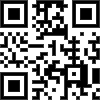Conflict of interests
Public trust in the scientific process and the reliability of published articles partially depend on how transparent conflicts of interests are in the process of planning, research, writing, expert review, editing and publishing of scientific work.
Conflict of interests exists when a professional judgment about primary interest (for example, the validity of research) can depend on a secondary interest (for example, financial benefit). Understanding the conflict of interests is just as important as actual conflicts of interests.
Financial relations (such as employment, consultations, shareholding, fees, patents and paid expert evaluations) are the most easily identifiable conflicts of interests and most likely disturb confidence of the journal, the authors and the science itself. However, conflicts can arise for other reasons such as personal relations or competition, academic competition and intellectual beliefs.
Authors should avoid entering into agreements with sponsors of research, both commercial and non-commercial, that prevent the authors' access to all research data or interfere with their analysis and interpretation of data as well as for the preparation and publication of manuscript.
The participants
All participants in the review and publication process - not only the authors but also reviewers, editors and members of the journal editorial office must take into account their conflicts of interests in performing their roles in the process of review and publication of articles and should disclose everything that can be considered as potential conflicts of interests.
1. Authors
When authors provide a manuscript of any type or format, are responsible for disclosing all financial and personal relationships that may be preconceived or are considered to be preconceived for their work. If there is a conflict of interests in the article sent for publication in the journal, you should indicate this at the end of the manuscript under the heading "Application of interests conflict." You should specify:
- conflict of interests of authors,
- sources of work support including the names of sponsors as well as an explanation of the role of these sources, if sufficient.
If the article does not contain information on a conflict of interests, it is considered that there is no conflict of interests.
2. Reviewers
Before reviewing an article, the selected specialist is asked for information about the existence of conflicts of interests which may affect the results of the evaluation. Reviewers should disclose to the editors any conflicts of interest that might change their opinion of the manuscript and should refuse to review specific manuscripts if there is a potential for prejudgment. Reviewers should not use knowledge about the work they are considering before publishing to promote their own interests.
3. Editors and journal staff
Editors who make final decisions on manuscripts must refuse the decisions if they have conflicts of interests or relations that create potential conflicts related to the articles under consideration. Other editors participating in editorial decisions should provide editors with a current description of their financial interests or other conflicts and refuse any decisions in which there is a conflict of interests. Editorial staff should not use the information obtained as a result of working with manuscripts for personal benefit.




